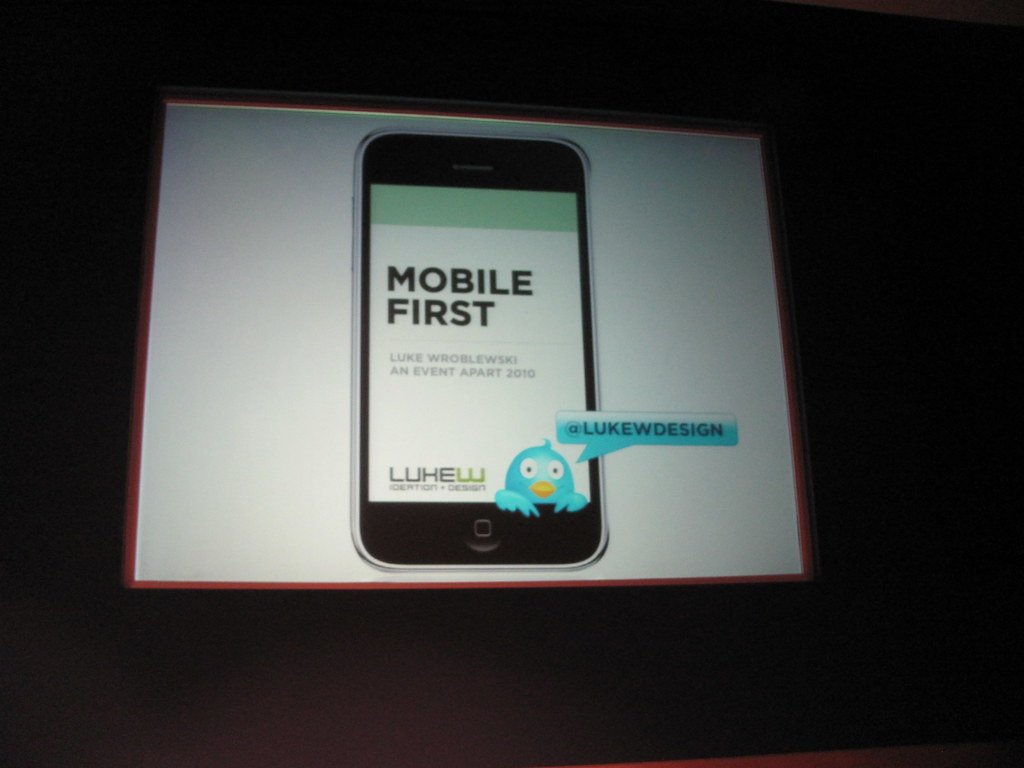In an era where our lives have become inseparable from our smartphones, it comes as no surprise that the world of search engine optimization (SEO) is undergoing a transformative revolution. Welcome to the mobile-first revolution, where the potential of SEO is being unlocked in ways we never thought possible. As we dive deep into this mesmerizing realm, we will uncover the secrets behind harnessing the power of mobile devices and how it is reshaping the digital landscape. So fasten your seatbelts and get ready to explore the awe-inspiring journey of SEO in the mobile-first era.
Table of Contents
- The Mobile-First Approach: Transforming SEO Strategies for the Modern Age
- Understanding the Crucial Role of Mobile Optimization in SEO Success
- Leveraging Mobile-First Design Principles to Enhance SEO Performance
- Key Recommendations for Capitalizing on the Mobile-First Revolution
- Q&A
- Closing Remarks

The Mobile-First Approach: Transforming SEO Strategies for the Modern Age
In today’s modern age, it is undeniable that the mobile-first revolution is reshaping the way we approach SEO strategies. With the increasing dominance of smartphones and tablets, businesses are now required to prioritize their mobile presence in order to stay relevant and competitive in the online landscape. This shift in focus has paved the way for a new era of SEO, where websites must be optimized for mobile devices in order to rank high and drive organic traffic.
One of the key advantages of adopting a mobile-first approach is the ability to provide a seamless user experience. Mobile optimization ensures that your website is responsive and easily accessible on various screen sizes and resolutions. This not only improves user engagement and satisfaction, but it also boosts your chances of converting visitors into customers. Additionally, search engines now prioritize mobile-friendly websites in their rankings, making it imperative for businesses to optimize their web pages accordingly.
When it comes to designing a mobile-first SEO strategy, it is important to focus on page load speed. Mobile users are notoriously impatient, and a slow-loading website can quickly discourage them from exploring further. By optimizing your site’s code and compressing images, you can significantly reduce load times and enhance the overall user experience. Another crucial aspect is ensuring that your content is easily readable on mobile devices. This means using a legible font size, organizing your text into smaller paragraphs, and employing bullet points or numbered lists where necessary. By following these best practices, you can unlock the potential of SEO in the mobile-first revolution and propel your online presence to new heights.
Understanding the Crucial Role of Mobile Optimization in SEO Success
With the rise of smartphones, the mobile-first revolution has transformed the way people access and interact with websites. As a beginner in the world of SEO, it is crucial to understand the pivotal role mobile optimization plays in achieving success with search engine rankings.
1. Enhanced User Experience: Mobile optimization ensures that your website is responsive and easy to navigate on mobile devices. It allows users to effortlessly browse your site, find the information they need, and engage with your content. By delivering a seamless user experience, you increase the chances of visitors staying longer on your site and converting into loyal customers.
2. Improved Search Engine Rankings: Search engines like Google prioritize mobile-friendly websites in their search results. By optimizing your website for mobile devices, you signal to search engines that your site is user-friendly and provides a positive experience. This can positively impact your SEO efforts and help you climb higher in the search engine rankings.
3. Faster Page Load Times: Mobile optimization involves optimizing your website’s performance to load quickly on mobile devices. In today’s fast-paced world, users expect websites to load rapidly. If your site takes too long to load, users are likely to abandon it and move on to a competitor. A faster loading time not only improves user experience but also contributes to better search engine rankings.
4. Access to a Wider Audience: Mobile internet usage surpasses desktop usage. By optimizing your website for mobile devices, you tap into a larger and more diverse audience. Whether your visitors are browsing on their smartphones or tablets, your mobile-optimized site ensures that they can access your content anytime, anywhere.

Leveraging Mobile-First Design Principles to Enhance SEO Performance
With the rise of smartphones, the world has witnessed a revolution in the way people access the internet. As a result, mobile-first design principles have become essential for website owners to enhance their SEO performance. By prioritizing mobile optimization, businesses can ensure that their websites are easily accessible and user-friendly on smaller screens, ultimately boosting their search engine rankings.
So, what exactly is mobile-first design? It refers to the practice of designing websites for mobile devices first, and then adapting them for larger screens. This approach recognizes that the majority of internet users now access websites through their smartphones and tablets. By adopting mobile-first design principles, websites can deliver a seamless and intuitive user experience across all devices, resulting in higher engagement and conversion rates. Furthermore, search engines such as Google now prioritize mobile-friendly websites in their rankings, making it even more important for businesses to embrace this trend.
To effectively leverage mobile-first design principles for SEO performance, here are some key strategies to consider:
– Responsive Design: Ensure your website automatically adjusts its layout and content based on the user’s device screen size.
– Fast Loading Speed: Optimize your website’s performance to load quickly on mobile devices, as page speed is a crucial ranking factor.
– Simplified Navigation: Design a clear and easy-to-use navigation menu that is accessible on small screens.
– Readable Text: Use legible font sizes and optimize your content for mobile reading by breaking up paragraphs into shorter sections.
Key Recommendations for Capitalizing on the Mobile-First Revolution
With the rapid rise of mobile internet usage, adapting your SEO strategies to the mobile-first revolution is crucial for staying ahead in the digital landscape. Here are some key recommendations to unlock the full potential of your SEO efforts:
- Responsive Web Design: Ensure your website is mobile-friendly by implementing a responsive web design. This allows your site to automatically adjust its layout and content to provide a seamless user experience across different screen sizes and devices.
- Optimize for Voice Search: As voice assistants become increasingly popular, optimizing your content for voice search is vital. Focus on conversational, long-tail keywords and create informative, natural-sounding answers to common questions to help improve your chances of appearing in voice search results.
- Page Speed Optimization: Mobile users are notoriously impatient, so optimizing your website’s loading speed is critical. Compress images, minify code, and leverage caching techniques to enhance your site’s performance and keep visitors engaged.
- Mobile-Friendly Content: Craft content that is easy to consume on mobile devices. Break up text with headings, bullet points, and short paragraphs to improve readability. Additionally, ensure your fonts are legible and your images are appropriately sized for mobile screens.
By following these recommendations, you can position your website for success in the mobile-first era. Embrace the opportunities that mobile optimization offers and revolutionize your SEO strategies to reach a wider audience and drive more organic traffic to your site. Remember, in the ever-evolving world of digital marketing, staying ahead of the curve is essential.
Q&A
Q: How has the shift to mobile-first indexing impacted SEO strategies?
A: The mobile-first revolution has completely transformed the way we approach SEO strategies. With mobile devices becoming the primary means of accessing the internet, websites are now prioritizing mobile optimization. This shift has forced SEO professionals to adapt their techniques, focusing on creating responsive design, improving page loading times, and optimizing content for mobile users.
Q: Why is mobile optimization crucial for SEO success?
A: Mobile optimization is crucial because search engines, like Google, prioritize mobile-friendly websites in their rankings. By neglecting mobile optimization, a website is likely to lose visibility and organic traffic, hindering its SEO success. With mobile devices accounting for a significant portion of web traffic, it’s essential to meet the increasing demand for seamless mobile experiences in order to achieve high search engine rankings.
Q: How does mobile-first indexing work, and what does it mean for website owners?
A: Mobile-first indexing means that Google predominantly uses the mobile version of a website for indexing and ranking purposes. This shift reflects the search engine’s recognition of mobile devices’ dominance in online browsing. Website owners must ensure that their mobile version is fully optimized, as it serves as a website’s primary representation to search engines. Neglecting mobile optimization can lead to indexing and ranking issues, ultimately impacting organic traffic and user engagement.
Q: What are some practical tips for enhancing mobile optimization?
A: To enhance mobile optimization, website owners should prioritize responsive design, ensuring their website adapts seamlessly to various screen sizes. Optimizing page loading times by compressing images and reducing unnecessary scripts is also crucial for mobile users who crave instant access. Additionally, optimizing content for mobile-friendly readability, utilizing whitespace, and employing concise headings and bullet points can improve the user experience and encourage engagement.
Q: How can a website ensure the best mobile experience for its users?
A: Websites can ensure the best mobile experience by conducting regular site audits, testing and fixing any mobile usability issues. Implementing intuitive navigation, mobile-friendly CTAs (Call to Actions), and touch-friendly buttons can enhance user experience. Regularly monitoring website performance on different mobile devices and screen sizes is also important to catch any potential issues and make necessary improvements.
Q: Does mobile-first indexing affect desktop rankings?
A: Mobile-first indexing primarily impacts mobile rankings. However, this doesn’t mean that desktop rankings are completely disregarded. Desktop rankings may be affected indirectly, as a poorly optimized mobile experience can negatively impact user engagement and overall traffic. With the majority of users accessing websites through mobile devices, it’s essential to prioritize mobile optimization and indirectly improve the desktop rankings as well.
Q: What are the long-term implications of the mobile-first revolution for SEO professionals?
A: The mobile-first revolution marks a turning point for SEO professionals. It emphasizes the importance of mobile optimization in achieving higher search engine rankings and organic traffic. As mobile devices continue to dominate user preferences, SEO professionals must focus on staying ahead of the curve, adapting to new mobile technologies, and understanding user behavior on mobile platforms. Failure to do so may result in missed opportunities and diminished visibility in a mobile-first world.
Closing Remarks
As we conclude our exploration into the mobile-first revolution and its undeniable impact on SEO, we stand in awe of the incredible potential that lies before us. With every swipe, tap, and scroll, we are transforming the way we consume information and engage with the digital world.
Gone are the days when SEO was confined to desktop screens and static websites. Today, the mobile-first approach has become the new norm, forcing SEO experts to adapt, evolve, and uncover innovative strategies that elevate businesses to new heights.
In this ever-evolving landscape, where smartphones have become extensions of ourselves, we now have the power to unlock limitless possibilities. From voice search to artificial intelligence, mobile devices have become portals to enchanting realms of knowledge, where every inquiry holds the potential to shape our very existence.
But as we embrace this mobile-first revolution, we must not forget the essence of SEO’s purpose. It is not merely about ranking higher on search engine results pages; it is about connecting with audiences on a profound level. It is about crafting meaningful experiences, captivating hearts and minds, and building lasting relationships.
The mobile-first revolution has handed SEO professionals an extraordinary canvas upon which they can paint their digital masterpieces. It is a canvas that transcends boundaries and challenges conventions, urging us to think beyond traditional optimization tactics and venture into uncharted territories of creative exploration.
In this enchanted realm, success lies in understanding the ever-evolving needs and desires of mobile users. It lies in delivering seamless user experiences, captivating content, and mobile-focused design that leaves an indelible impression on the hearts and minds of our audience.
As we navigate this brave new digital world, let us not forget the importance of adaptability, agility, and continual learning. Let us embrace change and reinvent our SEO strategies to stay one step ahead of the game. SEO’s potential is truly boundless when paired with the mobile-first mindset.
So, let us venture forth, armed with the knowledge and understanding of the mobile-first revolution. Let us unlock the full potential of SEO, harnessing its magic to create experiences that captivate, inspire, and lead us into a future where the possibilities are without limits.
The mobile-first revolution is upon us, dear readers. Together, let us embark on this extraordinary journey, leaving no pixel unturned, no keyword unoptimized, and no opportunity unseized. The future is mobile, and SEO’s potential awaits our creative spirits to unfold its wonders.

